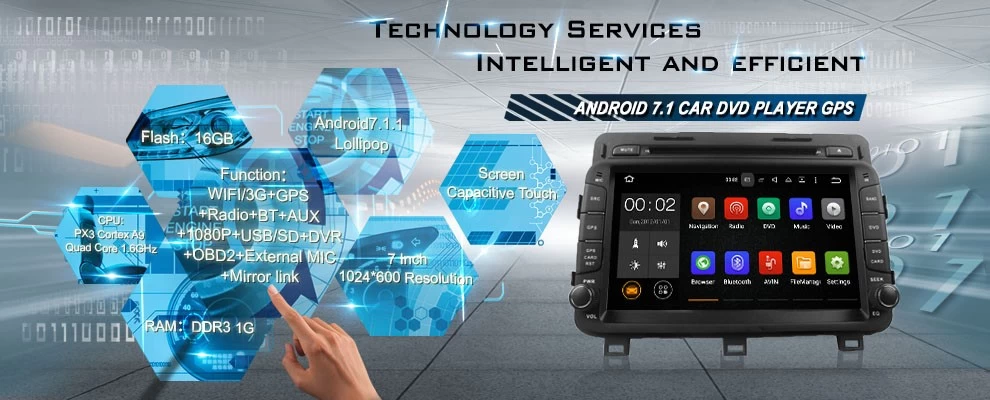Accelerating Supply Chain Transformation with New Electric Vehicle Regulations
2023-12-26 15:57:25
The global shift towards sustainable transportation has led to a rapid increase in the adoption of electric vehicles (EVs). As governments and industries strive to reduce carbon emissions and combat climate change, new regulations are being introduced to accelerate the transformation of the supply chain for electric vehicles. This article aims to outline the key aspects of these regulations and how they are expected to drive significant changes in the EV supply chain.
Battery Technology Standards: To ensure the safety, performance, and interoperability of electric vehicle batteries, new regulations will establish stringent standards for battery technology. These standards will cover aspects such as energy density, charging speed, lifespan, and recyclability. By setting clear guidelines, these regulations will encourage manufacturers to invest in research and development, leading to the emergence of more efficient and sustainable battery technologies.
Charging Infrastructure Requirements: To support the widespread adoption of electric vehicles, regulations will mandate the development of a robust charging infrastructure. This will include the installation of charging stations in public spaces, commercial buildings, and residential areas. Additionally, regulations may require standardized charging connectors and protocols to ensure compatibility across different EV models. The establishment of a comprehensive charging network will alleviate range anxiety and promote the growth of the electric vehicle market.
Supply Chain Transparency: New regulations will emphasize the need for transparency in the EV supply chain. This will involve tracing the origin of raw materials used in battery production, such as lithium, cobalt, and nickel, to ensure ethical sourcing and minimize environmental impact. Manufacturers will be required to disclose information about their supply chain practices, including the use of conflict-free minerals and adherence to fair labor standards. By promoting transparency, these regulations will foster consumer trust and encourage sustainable practices throughout the supply chain.
Incentives for Local Manufacturing: To reduce dependence on foreign imports and boost domestic economies, regulations may provide incentives for local manufacturing of electric vehicles and their components. This could include tax breaks, grants, or subsidies for companies that establish manufacturing facilities within the country. By encouraging local production, these regulations will create jobs, stimulate economic growth, and reduce transportation costs associated with importing EVs and their components.
Recycling and End-of-Life Management: To address the environmental impact of electric vehicle waste, regulations will focus on recycling and end-of-life management. Manufacturers will be required to establish take-back programs for used EV batteries and develop recycling processes to recover valuable materials. Additionally, regulations may encourage the use of recycled materials in the production of new EVs, reducing the demand for virgin resources. By promoting sustainable waste management practices, these regulations will minimize the environmental footprint of electric vehicles.
The introduction of new regulations for electric vehicles will have a profound impact on the supply chain, driving significant changes in battery technology, charging infrastructure, supply chain transparency, local manufacturing, and recycling practices. These regulations will not only accelerate the transition to sustainable transportation but also create opportunities for innovation, job creation, and economic growth. As governments and industries collaborate to implement these regulations, the electric vehicle supply chain will undergo a transformative shift towards a greener and more sustainable future.
Battery Technology Standards: To ensure the safety, performance, and interoperability of electric vehicle batteries, new regulations will establish stringent standards for battery technology. These standards will cover aspects such as energy density, charging speed, lifespan, and recyclability. By setting clear guidelines, these regulations will encourage manufacturers to invest in research and development, leading to the emergence of more efficient and sustainable battery technologies.
Charging Infrastructure Requirements: To support the widespread adoption of electric vehicles, regulations will mandate the development of a robust charging infrastructure. This will include the installation of charging stations in public spaces, commercial buildings, and residential areas. Additionally, regulations may require standardized charging connectors and protocols to ensure compatibility across different EV models. The establishment of a comprehensive charging network will alleviate range anxiety and promote the growth of the electric vehicle market.
Supply Chain Transparency: New regulations will emphasize the need for transparency in the EV supply chain. This will involve tracing the origin of raw materials used in battery production, such as lithium, cobalt, and nickel, to ensure ethical sourcing and minimize environmental impact. Manufacturers will be required to disclose information about their supply chain practices, including the use of conflict-free minerals and adherence to fair labor standards. By promoting transparency, these regulations will foster consumer trust and encourage sustainable practices throughout the supply chain.
Incentives for Local Manufacturing: To reduce dependence on foreign imports and boost domestic economies, regulations may provide incentives for local manufacturing of electric vehicles and their components. This could include tax breaks, grants, or subsidies for companies that establish manufacturing facilities within the country. By encouraging local production, these regulations will create jobs, stimulate economic growth, and reduce transportation costs associated with importing EVs and their components.
Recycling and End-of-Life Management: To address the environmental impact of electric vehicle waste, regulations will focus on recycling and end-of-life management. Manufacturers will be required to establish take-back programs for used EV batteries and develop recycling processes to recover valuable materials. Additionally, regulations may encourage the use of recycled materials in the production of new EVs, reducing the demand for virgin resources. By promoting sustainable waste management practices, these regulations will minimize the environmental footprint of electric vehicles.
The introduction of new regulations for electric vehicles will have a profound impact on the supply chain, driving significant changes in battery technology, charging infrastructure, supply chain transparency, local manufacturing, and recycling practices. These regulations will not only accelerate the transition to sustainable transportation but also create opportunities for innovation, job creation, and economic growth. As governments and industries collaborate to implement these regulations, the electric vehicle supply chain will undergo a transformative shift towards a greener and more sustainable future.












